We’ve teamed up with Bord Bia and Dietitian, Aoife Hearne, to talk through some popular potato myths.
With so many diet myths out there, it can be tricky to know what advice to follow. Aoife’s here to set the record straight and lay out the facts.
MYTH: Potatoes only taste good with butter, cheese or mayonnaise.
FACT: Think outside the box! Potatoes actually work well in many dishes without the use of large quantities of saturated fat such as butter, cheese and mayonnaise. Oil-based sauces such as pesto can offer a tasty and healthier alternative to butter all the time. Remember, if using butter use good quality choices and small portions.
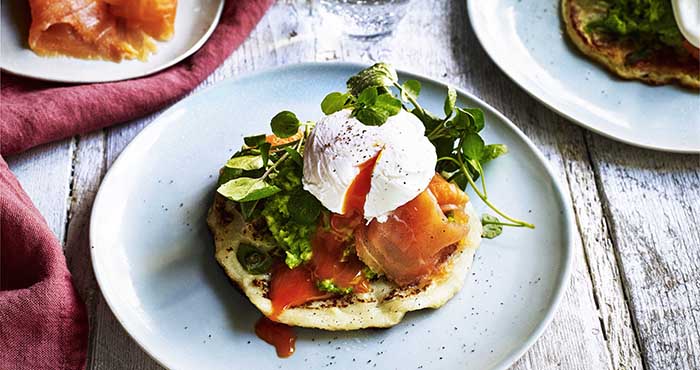
Try this potato pancake with smashed avocado and smoked salmon for an alternative potato recipe.
MYTH: Giving up carbs is good for your body and helps
you lose weight.
FACT: Your body, especially your brain, needs carbs to function. Cutting carbohydrates out completely may result in short-term weight loss — as will cutting out any major component
of your diet — but will be extremely difficult to maintain in the long run, so will not help with sustainable weight loss.
MYTH: Potatoes have no health benefits.
FACT: Potatoes are packed with vitamin C, B vitamins and potassium — more than in a banana! They also contain calcium, magnesium, phosphorus and fibre. Eating plenty of fibre is associated with a lower risk of heart disease, stroke, type 2 diabetes and bowel cancer. The Irritable Bowel Association of America recommends potatoes as a suitable food for people with gut disorders such as irritable bowel syndrome (IBS).
MYTH: Potatoes are fattening.
FACT: No one food is fattening, but potatoes in particular are naturally fat-free. Because they’re a good source of fibre, they are filling, but this is a good thing — being kept full for longer means you’re less likely to be tempted by unnecessary snacks. Remember to keep your potatoes to about one-third of your plate and stop eating when you start to feel full.
MYTH: Gluten free food is hard to find and is expensive.
FACT: Potatoes are naturally gluten-free and are inexpensive to buy, making them a great choice for people with coeliac disease who need to follow a gluten-free diet.
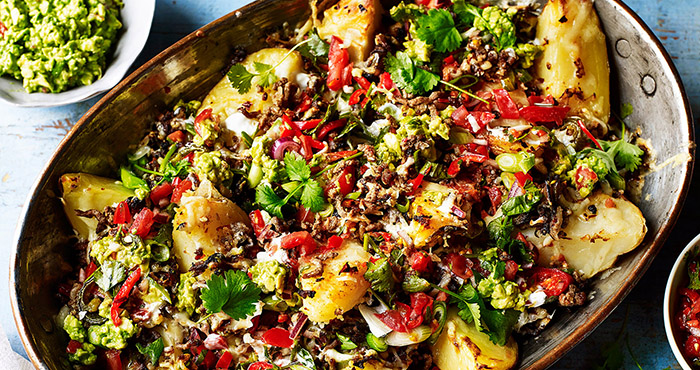
Looking for a gluten-free potato based dinner? Try these tasty Mexican chilli potato wedges
Myth: Potato skins should be peeled and thrown away.
FACT: Potato skins are highly nutritious and packed with dietary fibre — so a rule of thumb is to keep the skins on!
MYTH: Potatoes are the most Irish of foods and there’s not much to them.
FACT: Potatoes have been grown all over the world for centuries as a highly nutritious (and cheap) way to feed large populations of people. There are ethnic recipes based on potatoes in most world cultures.
MYTH: You shouldn’t eat potatoes before sport matches or training sessions.
FACT: Potatoes actually form an important part of a sports nutrition plan. Any of the athletes and teams Aoife works with have potatoes as one of the main carbohydrate sources.
MYTH: All carbohydrates are created equally.
FACT: At a basic level, all carbohydrates break down into sugar in order to be absorbed by our bodies.This process takes longer with carbs high in fibre, making foods such as potatoes, wholegrain bread and wholewheat pasta better choices than their white counterparts. Potatoes are far from being ‘just another carb’ — they form part of a healthy diet and are the ultimate natural food.
MYTH: It takes too long to cook potatoes.
FACT: We understand the importance of quick, easy meal prep. There are many ways to make potatoes a fast option. Organisation and preparation are key; use Sunday to prepare for the week ahead, e.g. by pre-cooking extra potatoes with dinner that can be mashed and reheated.You can microwave a potato in minutes and baby potatoes are a great quick option.
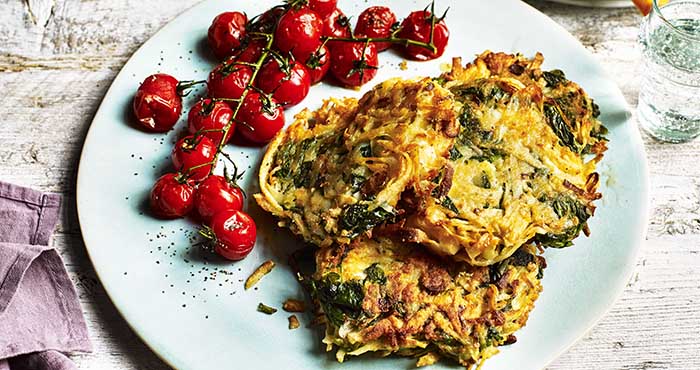
These Feta and spinach potato rösties with roasted tomatoes can be whipped up in under 30 minutes!
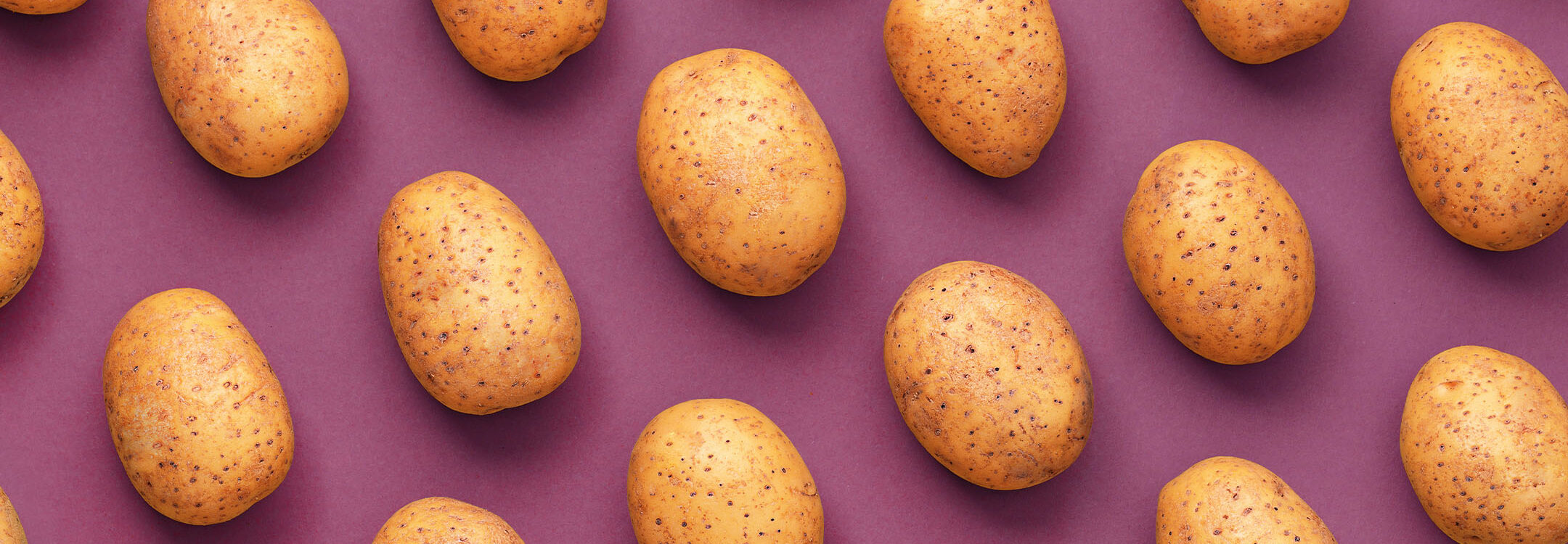

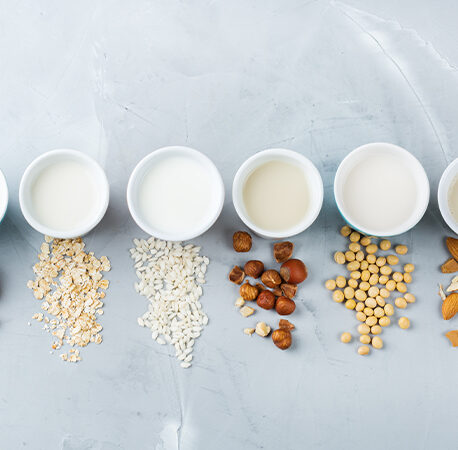
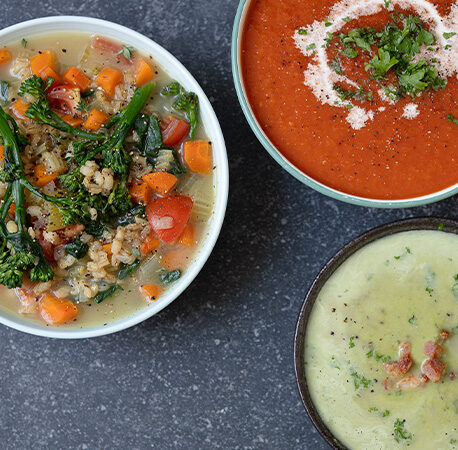

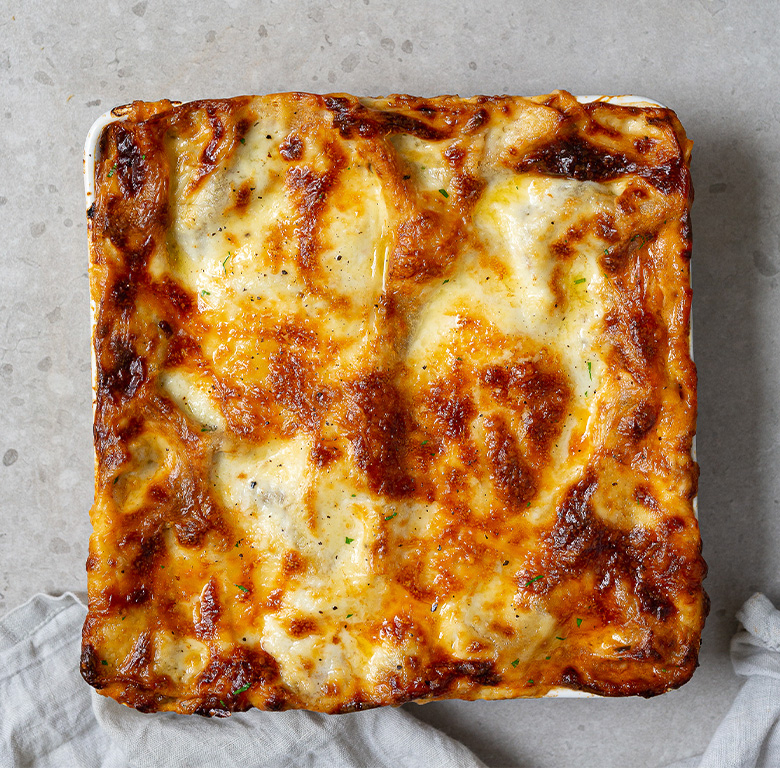
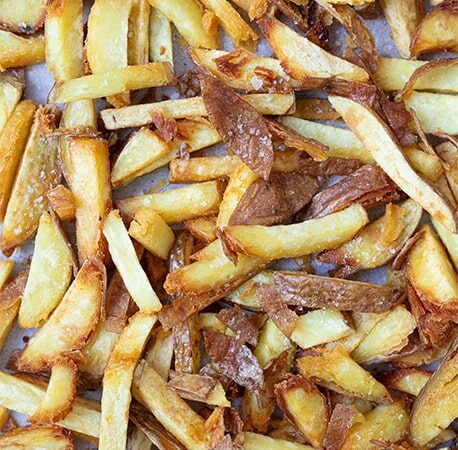
You have to be signed in to comment this post.